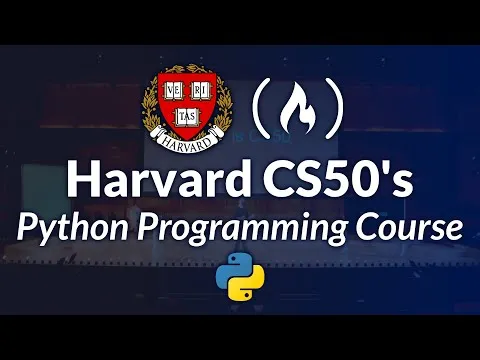
Intro to Java Programming 
This introductory course provides an introduction to the fundamentals of Java programming. Students will learn Object Oriented Programming, enabling them to use existing code in their own programs. They will also gain practical experience by solving real-world software engineering problems. ▼
ADVERTISEMENT
Course Feature
![]() Cost:
Cost:
Free
![]() Provider:
Provider:
Udacity
![]() Certificate:
Certificate:
No Information
![]() Language:
Language:
English
![]() Start Date:
Start Date:
3rd Jun, 2013
Course Overview
❗The content presented here is sourced directly from Udacity platform. For comprehensive course details, including enrollment information, simply click on the 'Go to class' link on our website.
Updated in [March 06th, 2023]
Course Overview: This course will introduce you to the fundamentals of Java programming. You’ll learn about the language’s syntax, data types, and control structures. You’ll also learn how to use Object Oriented Programming to create programs that are more efficient and easier to maintain.
Possible Development Directions: After completing this course, you’ll have the skills necessary to move on to more advanced topics in Java programming. You’ll be able to create more complex programs, and you’ll be able to use the language to develop Android apps and back-end web development.
Related Learning Suggestions: If you’re interested in learning more about Java programming, you can take more advanced courses in the language. You can also explore other programming languages, such as Python, C++, and JavaScript. Additionally, you can learn more about software engineering and computer science concepts, such as algorithms and data structures.
[Applications]
Upon completion of this course, students can apply their knowledge of Java programming to develop Android apps, create back-end web applications, or pursue further study in computer science. Additionally, students can use their newfound skills to create their own projects and explore the world of software engineering.
[Career Paths]
1. Java Developer: Java Developers are responsible for developing and maintaining applications using the Java programming language. They must have a strong understanding of Object Oriented Programming principles and be able to write efficient code. As the demand for mobile and web applications continues to grow, the demand for Java Developers is expected to increase as well.
2. Android Developer: Android Developers are responsible for developing applications for the Android operating system. They must have a strong understanding of the Android SDK and be able to write efficient code. As the demand for mobile applications continues to grow, the demand for Android Developers is expected to increase as well.
3. Web Developer: Web Developers are responsible for developing and maintaining websites and web applications. They must have a strong understanding of HTML, CSS, and JavaScript, as well as be able to write efficient code. As the demand for web applications continues to grow, the demand for Web Developers is expected to increase as well.
4. Software Engineer: Software Engineers are responsible for designing, developing, and maintaining software applications. They must have a strong understanding of computer science principles and be able to write efficient code. As the demand for software applications continues to grow, the demand for Software Engineers is expected to increase as well.
[Education Paths]
Recommended Degree Paths:
1. Bachelor of Science in Computer Science: This degree program provides a comprehensive overview of computer science fundamentals, including programming languages, software engineering, and computer architecture. It also covers topics such as artificial intelligence, data structures, and algorithms. This degree is ideal for those looking to pursue a career in software engineering or computer science.
2. Master of Science in Software Engineering: This degree program focuses on the design and development of software systems. It covers topics such as software architecture, software testing, and software project management. This degree is ideal for those looking to specialize in software engineering and become a software architect or software engineer.
3. Bachelor of Science in Information Technology: This degree program provides a comprehensive overview of information technology, including topics such as networking, database management, and web development. It also covers topics such as system security, software development, and system administration. This degree is ideal for those looking to pursue a career in information technology or web development.
4. Master of Science in Artificial Intelligence: This degree program focuses on the development of intelligent systems and algorithms. It covers topics such as machine learning, natural language processing, and computer vision. This degree is ideal for those looking to specialize in artificial intelligence and become a data scientist or machine learning engineer.
Developing Trends:
1. Cloud Computing: Cloud computing is becoming increasingly popular as a way to store and access data. This technology allows for the storage and retrieval of data from remote servers, making it easier to access and manage data.
2. Internet of Things (IoT): IoT is a network of connected devices that can communicate with each other and exchange data. This technology is becoming increasingly popular in the development of smart homes and connected devices.
3. Machine Learning: Machine learning is a type of artificial intelligence that allows computers to learn from data and make predictions. This technology is becoming increasingly popular in the development of autonomous systems and intelligent applications.
4. Blockchain: Blockchain is a distributed ledger technology that allows for secure and transparent transactions. This technology is becoming increasingly popular in the development of secure and transparent financial systems.
Course Provider

Provider Udacity's Stats at AZClass
Intro to Java Programming introduces the fundamentals of Java programming. Students will learn object-oriented programming, enabling them to use existing code in their own programs. They will also gain practical experience by solving real-world software engineering problems. Learners can learn the fundamentals of Java programming in this introductory course. They will learn about object-oriented programming and how to use code written by other programmers in their own programs. They will also learn how to solve real-world problems faced by software engineers. Additionally, learners will understand the popularity and ease of programming in Java and how it can be used for Android application development and backend web development.
Discussion and Reviews
0.0 (Based on 0 reviews)
Explore Similar Online Courses

Sports Administration and Management

World Chess Championship 2018 Carlsen - Caruana Tie Breaks

RDBMS PostgreSQL

Intro To PostgreSQL Databases With PgAdmin For Beginners

PostgreSQL: Client Applications

Mastering SQL using Postgresql

Database Design and Basic SQL in PostgreSQL

PostgreSQL: Advanced Queries

Spatial SQL with Postgres : A language for geographers

Learn SQL Using PostgreSQL: From Zero to Hero

PostgreSQL Essential Training

Harvard CS50's Introduction to Programming with Python : Full University Course
 Related Categories
Related Categories
 Popular Providers
Popular Providers
Quiz
 Submitted Sucessfully
Submitted Sucessfully
1. What is the main purpose of this course?
2. What is the main language used in this course?
3. What is the main benefit of taking this course?
4. What is the primary language used in developing Android apps?
5. What is the main language used for developing Android apps?
Correct Answer: Java


Start your review of Intro to Java Programming